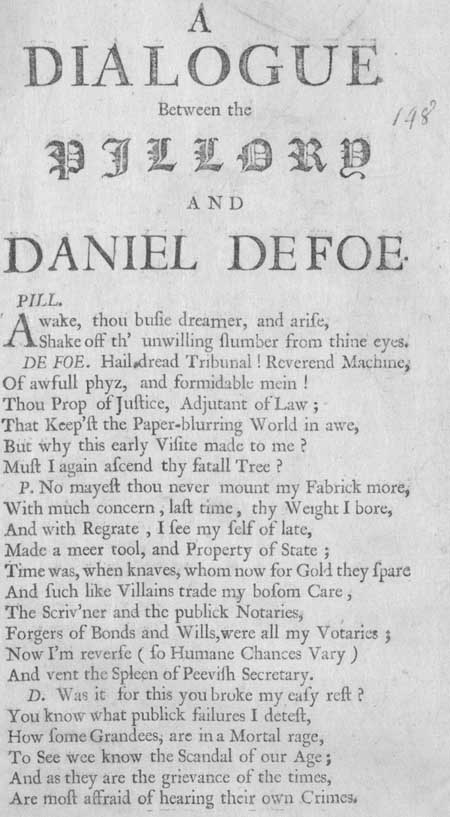Commentary
This fictional dialogue begins with the pillard saying: 'Awake, thou busie dreamer, and arise, / Shake off th' unwilling slumber from thine eyes.' Defoe replies: 'Hail dread Tribunal! Reverend Machine, / Of awfull phyz, and formidable mein!' No publication details are on the sheet. English-born Daniel Defoe (1660-1731) was put in the pillory (or stocks), in July 1703, and this piece was probably written around that time or shortly afterwards. Defoe was subjected to this public humiliation for the publication of a pamphlet, 'The Shortest Way with Dissenters'. This was an attack on the High Church, written as if from its viewpoint, but extending its arguments to the point of ludicrousness. Both the Church and Dissenters took it seriously and were outraged when they discovered it was a hoax. When put on the pillory, however, Defoe was hailed a hero, and flowers were thrown instead of the usual rocks. He wrote a celebrated poem about his experience, 'Hymn to the Pillory', the same year. Broadsides are single sheets of paper, printed on one side, to be read unfolded. They carried public information such as proclamations as well as ballads and news of the day. Cheaply available, they were sold on the streets by pedlars and chapmen. Broadsides offer a valuable insight into many aspects of the society they were published in, and the National Library of Scotland holds over 250,000 of them.
View Transcription | Download PDF Facsimile
|
 |
Probable date published:
1706 shelfmark: S.302.b.2(044)
 View larger image
View larger image
|


